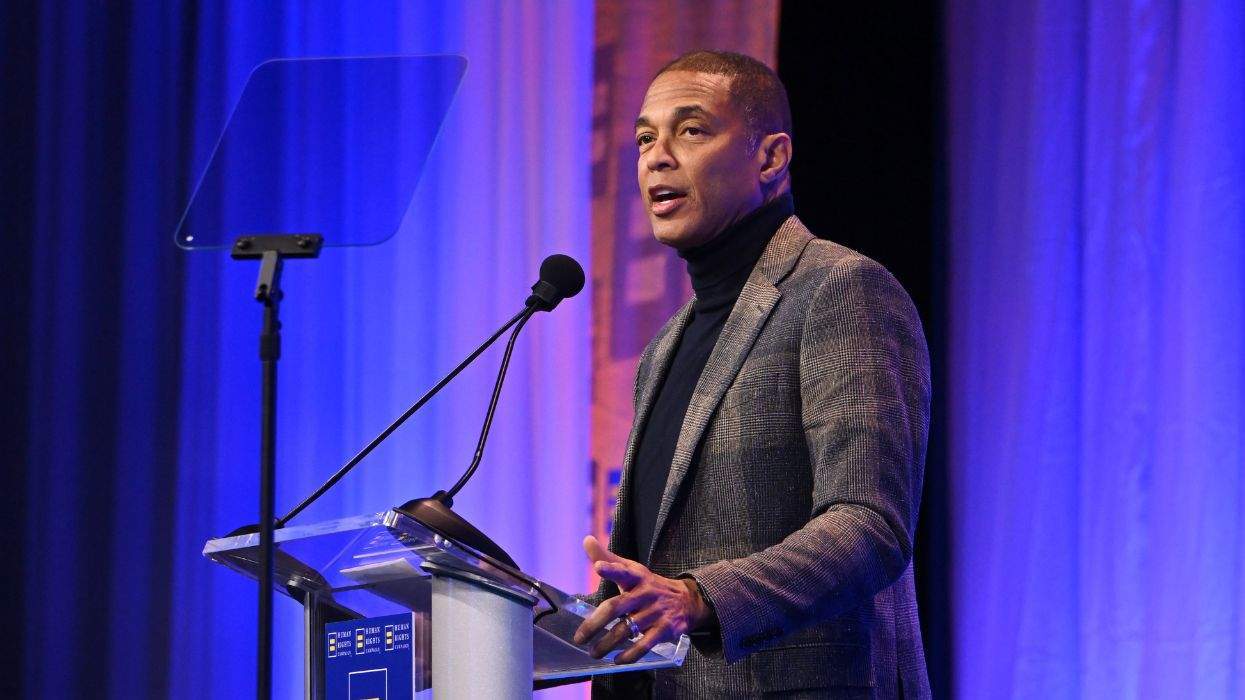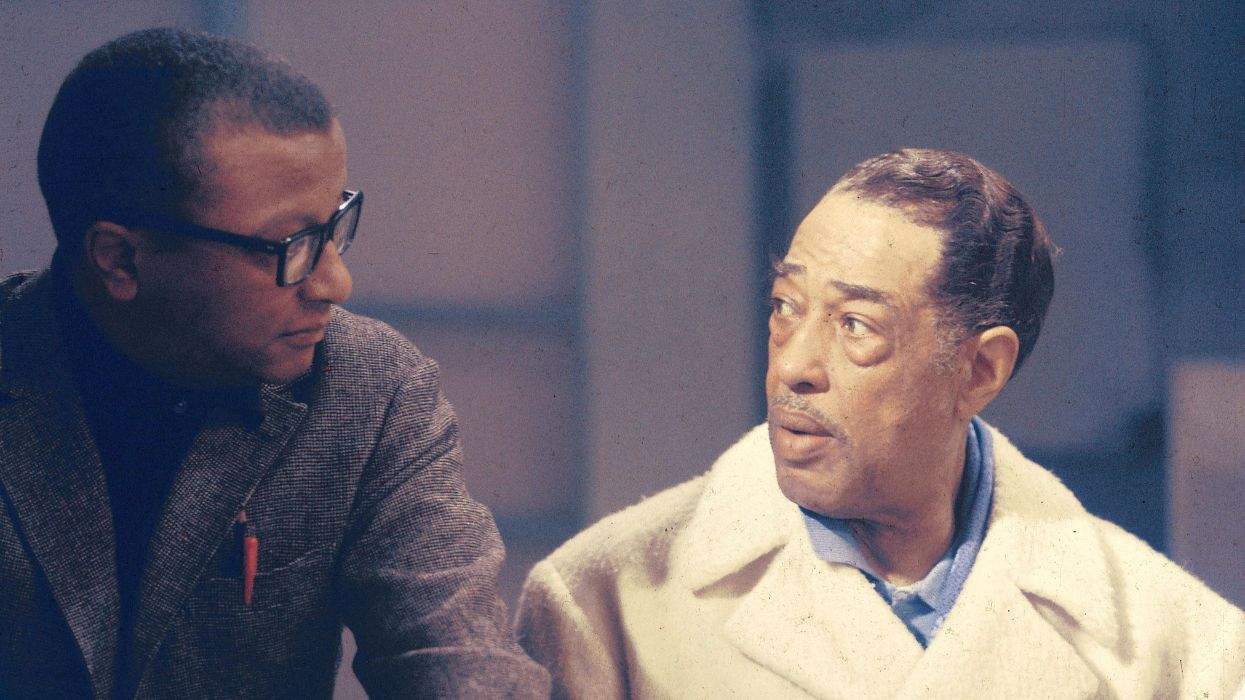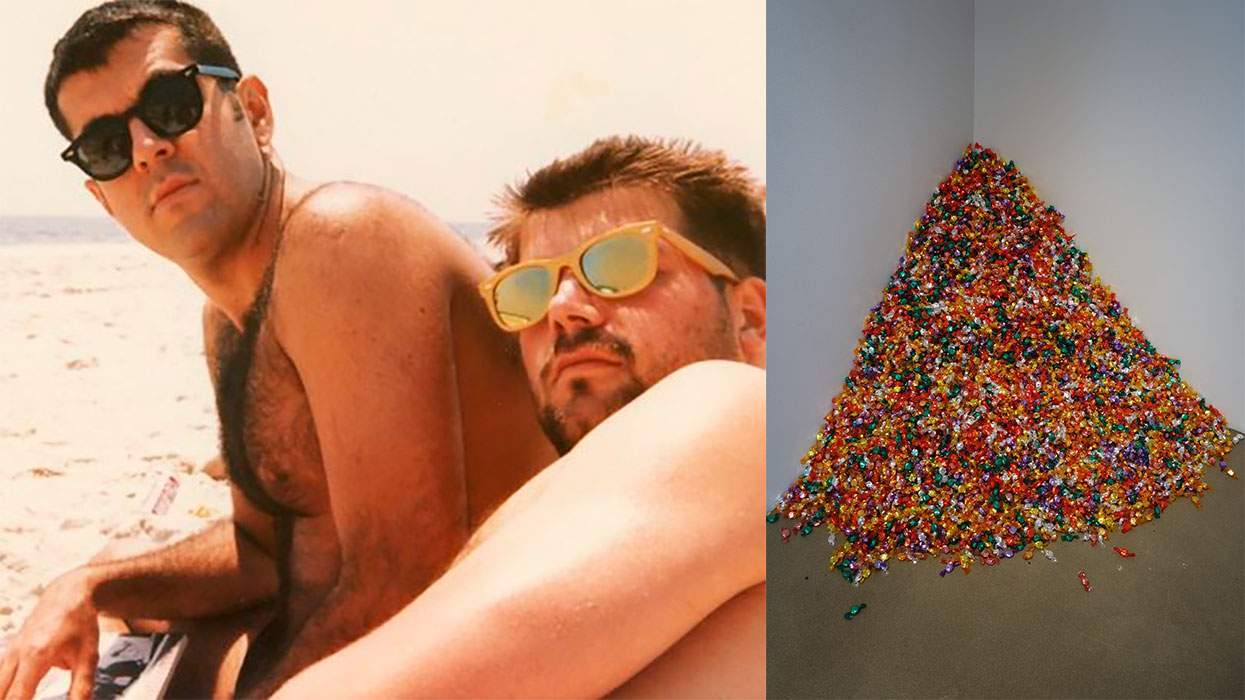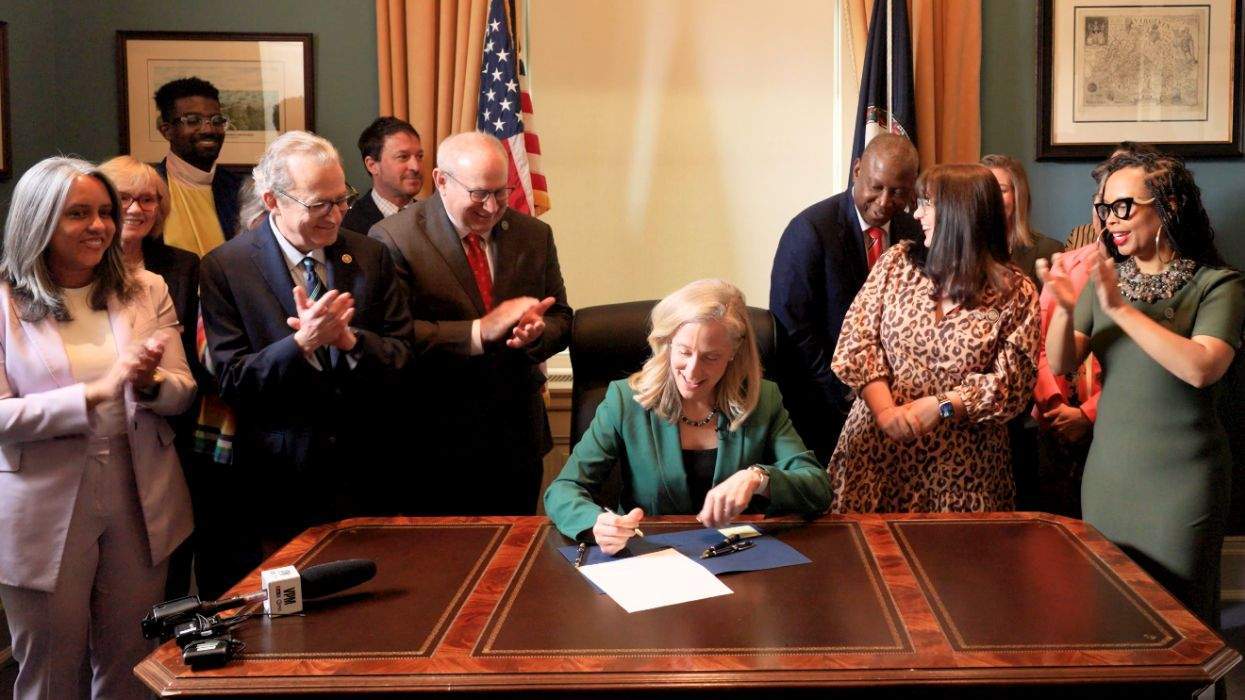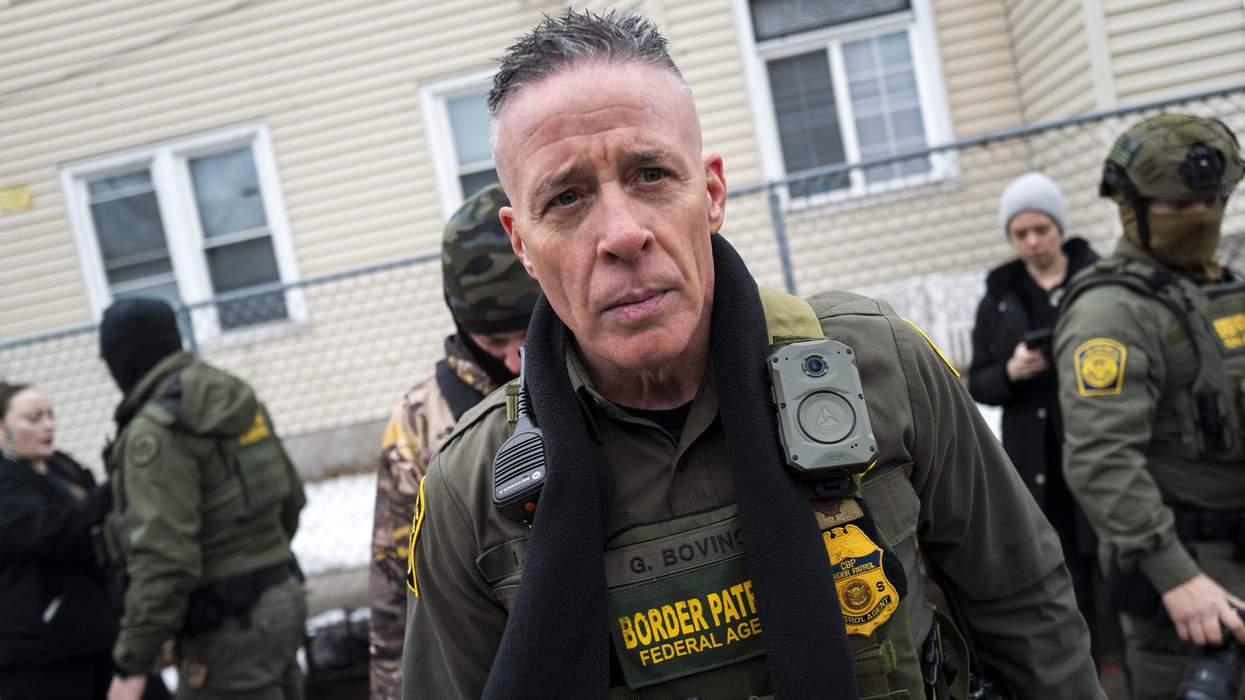I woke up the same way I do every morning. Before even leaving my bed, I looked at my phone to see all the notifications in the night. Of course, as there always is, a story about Donald Trump was at the very top of the feed. Another day, another tale of Trump doing something horrible. Yet before I swiped, the word "transgender" caught my eye. Clicking in, I learned that Trump had announced he was barring all transgender people from the military. Not even having put feet on the ground yet, this was how I started my day.
In my hour-long commute to work at The Advocate, I put the trans ban into context with myself during a conversation in my head.
"Sure, I'm a trans woman, but it's not like I was planning on joining the military. Obviously this is a terrible thing, but I'll be OK. I'm so lucky. I may be trans, but I'm also privileged in so many ways. I was able to change my gender on my birth certificate, so even most anti-trans bathroom bills don't affect me at all. Let me put that privilege to use fighting for those who don't have it."
And I certainly am lucky. Lucky to work full-time at a place that allows me to directly confront this issue. At the morning meeting, I got to hear The Advocate's editor in chief say, "Everything we do today should be about trans people," Today, my sole focus would be fighting for them. I was fighting for people other than myself who need my efforts so much more.
All of this is true. I am privileged through race, economic class, location, and so many others things. Yet I am transgender. What I hadn't realized was that by distancing myself from the direct effects of the anti-transgender actions in this country, I was numbing myself to my own fear and pain. I had "othered" myself from those being targeted in order to protect myself within my own mind. I certainly cared, but I cared about other people's pain without acknowledging my own.
It wasn't until the end of the day that I realized what I had done. When most others had left, my boss asked me how I was doing after today. As I spoke, my sentences shifted from how others felt to how I felt. I realized that I was starting to tear up. Sure, I wasn't directly affected by the trans ban. Yet it was an attack on who I am. In Trump's own words, by being trans I was a "burden" to this country.
It was helpful to have all these unfelt emotions finally come out as I stood there in the office. So often many of us in the LGBT community compartmentalize ourselves. We say it's normal, that it isn't happening to me. We protect ourselves because we are a few degrees removed from the direct attack. Yet attacks like that have reverberations for all of us and we all feel them. It's important that we express those feelings.
On the other hand, there is something to be said for protecting ourselves. A few days after opening up about my pain, I still felt emotionally bruised. Being trans, I often get sideways glances and stares from people in crowds. Usually I can ignore it or take it in stride. But this weekend, I wanted to scream at everyone who looked. "Why do I constantly have to be reminded that I'm an other to you? Why do I have to be seen as different? It takes so much brain power to constantly be reminded that I'm trans."
My emotional scab was ripped open just a few moments later. While I was alking around Burbank, a cisgender man started following me around while pointing at me and yelling, "IT'S A MAN. IT'S A MAN." I tried to ignore him but eventually I couldn't take it anymore and yelled at him to "fuck off" before finally escaping. Then I spent the rest of the night crying over something I'm usually able to shake off.
I know I did nothing wrong, but I'm still disappointed in myself. I truly believe we need to be better than those who harm us in order to change things. I believe we should answer anger and hatred with patience and understanding, not their own vitriol shoved back at them. So yelling "fuck off" was not who I am. After opening myself to feeling pain, I needed time to heal and instead was just given more pain. As a result, I had an emotional outburst and later breakdown that was greater than if I had protected myself.
How do we protect ourselves from constantly hurting but not prevent ourselves from feeling what needs to be felt? How much distancing makes us numb and how much pain makes us needlessly cause ourselves suffering?
To me, it's a balance. We have to protect our mental health as well as recognize that many of us, due to a multitude of factors, can be much better off then some of our LGBT compatriots. We also need to remember that we are a community, a family. An attack on one of us hurts us all, and we need to feel that pain. Some may feel it more sharply, but we all feel the harm in some way.
It is this shared pain that makes us stronger. By feeling each other's suffering, we can also give each other something back. My nontrans coworkers, from the editor in chief to my direct boss, felt my pain just as I felt that of my trans service member siblings. I was also able to take in my coworkers' strength and resolve just as I hope I give my strength to others.
We are stronger together. We can suffer together, protect each other, and fight for each other. We may all have different battles, fears, and levels of vulnerability due to our race, gender identity, economic class, sexuality, beliefs, or experiences. Yet we are all a family, and I wouldn't want to stand with anyone else.
JESSIE EARL is a video editor for The Advocate. Follow her on Twitter @lostrekkie.

